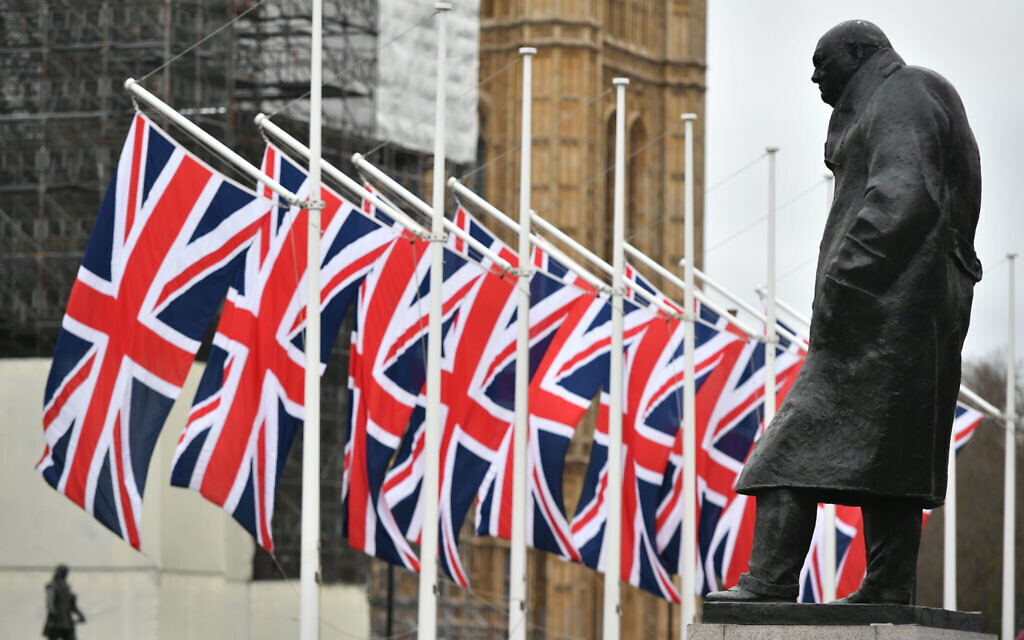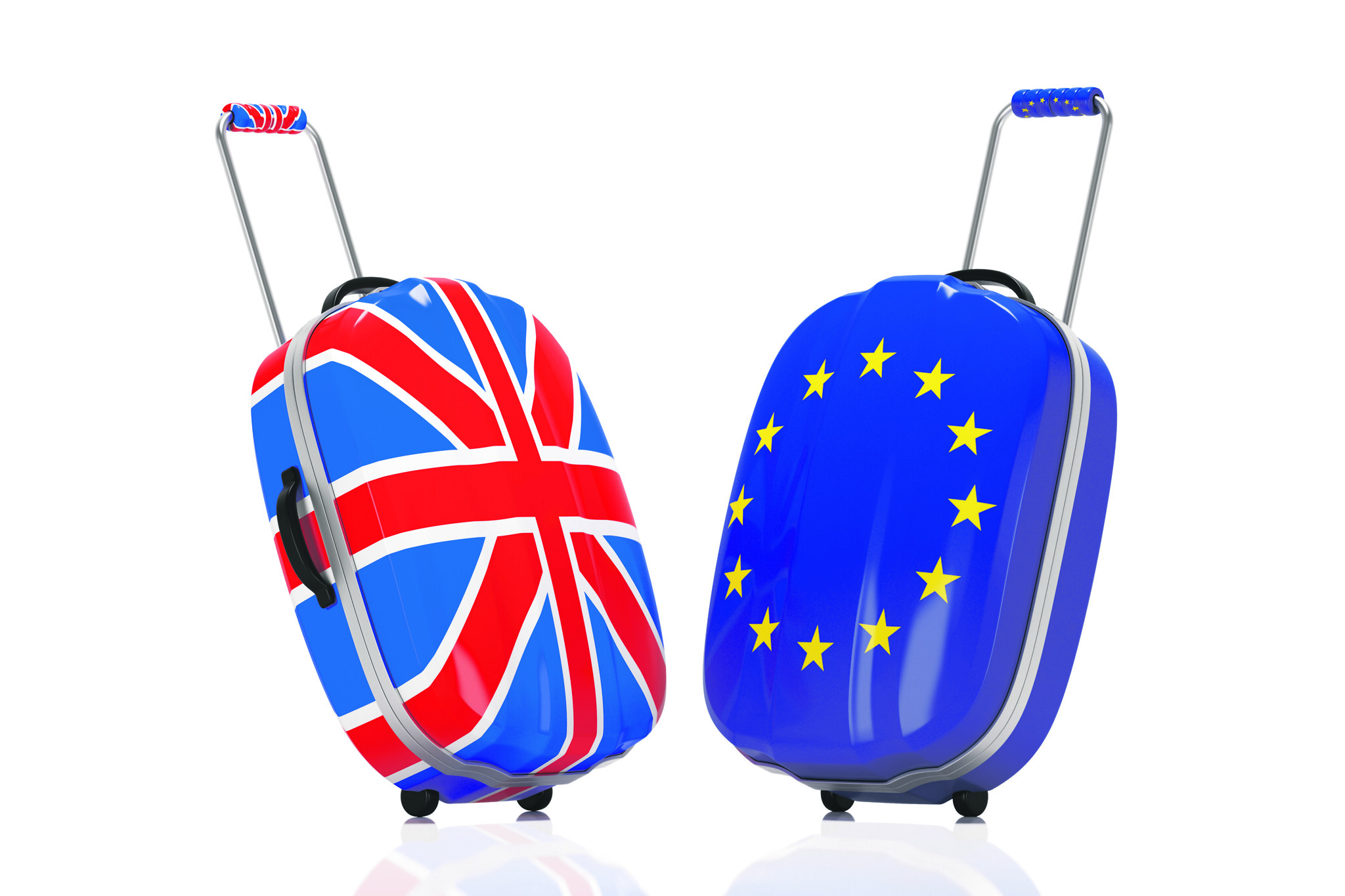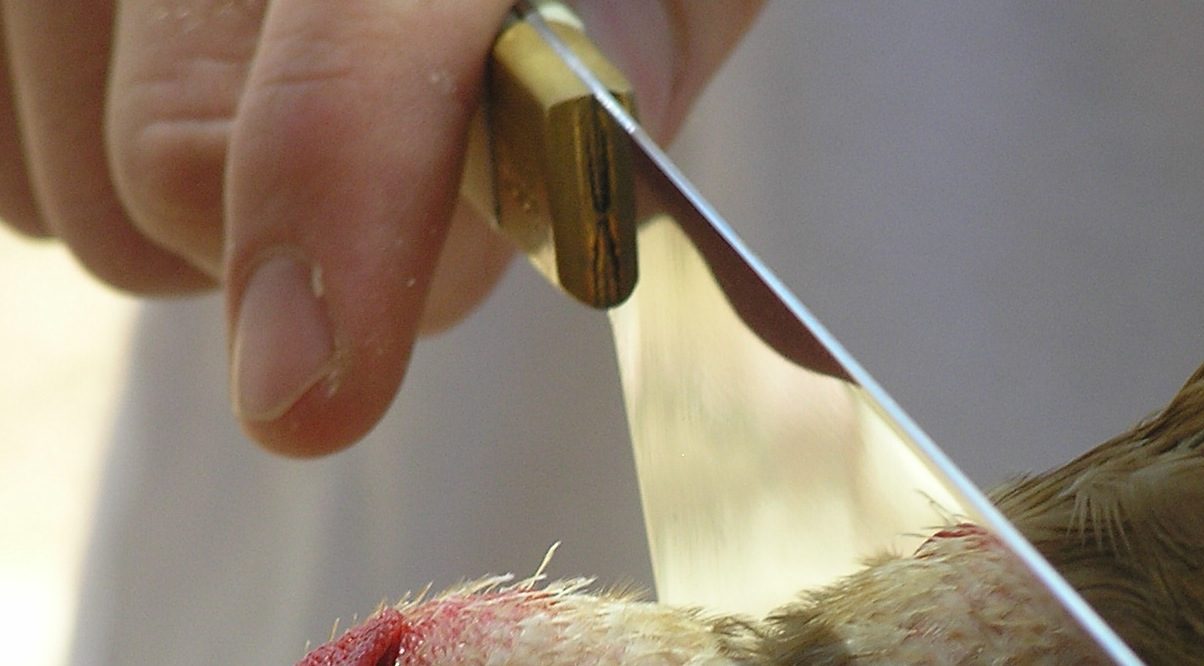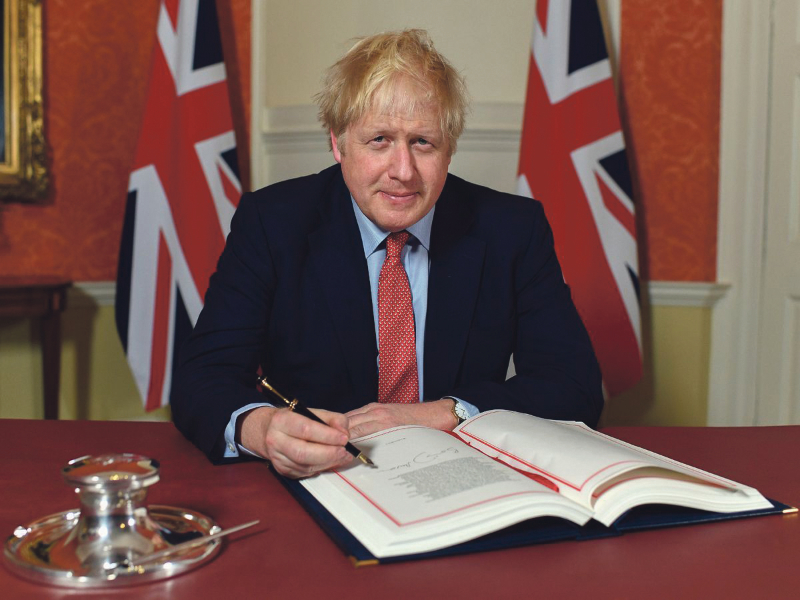What does Brexit Day mean for British Jews?
From shechita and security to UK-Israel trade, we look at the impact of exit from the EU on the community

Today is Brexit Day – when the UK officially leaves the European Union. In the days leading up to 31 January, experts have been quick to reassure that the country’s withdrawal from the European Union will not adversely affect Jewish life here.
This follows several meetings with government ministers, most recently with Brexit Secretary Steve Barclay, to discuss a range of issues, notably Jewish religious slaughter (shechita) and kosher food pricing, including post-Brexit tariffs, imports and exports, non-stun labelling, and abattoir certification.
Other areas of concern discussed included visas for security and care staff at Jewish institutions, the UK’s post-Brexit sanctions regime, the continuation of existing European funding for Jewish organisations, and a future UK-Israel trade deal.
Get The Jewish News Daily Edition by email and never miss our top stories Free Sign Up
Interestingly, the Board of Deputies – which initiated last week’s meeting with Barclay – said Jewish representatives pushed the case for “ensuring that the UK retains its reputation as an inclusive society after Brexit”.
Board vice president Amanda Bowman described these as “the key issues arising for the Jewish community from Brexit” after the meeting, which was also attended by representatives from the Jewish Leadership Council (JLC) and Shechita UK.

“We were able to thank Mr Barclay for the government’s action on a range of issues and ask for additional work on a few additional matters leading up to and following Brexit,” she said. “We were very pleased to hear his strong commitment to working with us.”
Barclay later tweeted that the government “looks forward to working with the Jewish community to make Brexit a success for all parts of our country”. But does he and the government still have work to do?
Privately, several Jewish representatives all told Jewish News that their Brexit fears had been assuaged by ministers over several months. One said: “With the Tories’ commanding new majority, we’re really not worried.”
On trade – until now covered by an EU-Israel deal – there was an early win in February last year, when Israel and the UK signed a bilateral post-Brexit deal replicating the existing EU agreement. Had that not been forthcoming, it could have impacted on Israeli goods, religious items and even UK-Israel flights.
By the summer, there were still some areas of concern, enough for Jewish groups to list these publicly. One such concern was sanctions, since the UK’s and EU’s list of terror groups subject to financial sanctions have not covered the same organisations.
Until now, groups such as the Al Aqsa Martyrs’ Brigade, the Popular Front for the Liberation of Palestine (PFLP) and the political wing of Hamas were technically only subject to UK sanctions by virtue of being under a wider EU sanctions regime.

“Unless the Treasury takes action, the PFLP, the political wing of Hamas, and The Al-Aqsa Martyrs’ Brigade will enjoy the lifting of financial sanctions when the UK leaves the EU,” the Board and JLC warned in 2018.
The Counter-Terrorism (International Sanctions) (EU Exit) Regulations 2019 lets the UK carry over the EU sanctions regime, and while it does not list the organisations covered, the Board said it had “received assurances from ministers” that the same groups would be included.
“The government intends to strengthen sanctions, not weaken them,” said one well-placed communal source. “Our question was, how do we know if the same organisations will be listed? Given that this is now a ministerial power, we are following up with the Foreign and Commonwealth Office, but there is no disagreement. It seems ministers now have it in hand.” Another said: “We were just making sure it was still on their radar.”
Kosher food had the potential to cause more problems. Agriculture legislation has always sat with the EU, and the Agriculture Bill translates this across, including laws governing the stun- and non-stun slaughter of animals for food.
“MPs and peers may seek to add [anti-shechita] amendments to this Bill,” another representative said. “But we’ve discussed this with ministers, the Department for Environment, Food and Rural Affairs (DEFRA) and, in some cases, individual MPs.
“We’re not expecting any surprises. The government has literally spent hours and hours talking to us to maintain things as they are now.”
This has allayed concern about the UK no longer coming under the European Court of Justice, which offers more protection from a human rights perspective, should Jewish groups have needed to challenge any new directive in the court of law.
Likewise, there were worries regarding possible additional tariffs, with some suggesting that kosher food may be classed as a “luxury good” or “premium product” and hit with higher tariffs in any post-Brexit trade world.
However, the majority of kosher meat for the UK market is produced in half a dozen UK abattoirs and, while any foodstuffs imported into the UK could well become more expensive in a no-deal scenario, it is “highly unlikely” extra tariffs would hit kosher products simply because of their designation.
Shimon Cohen, campaign director of Shechita UK, said: “Following Brexit, we will be in a transition period and, therefore, there will be little real impact until the end of the year.

“Shechita UK has had an ongoing dialogue with DEFRA since the referendum to ensure that shechita is protected post-Brexit and, as of today, we are not expecting any significant changes post the transition period.”
Another practical issue has been workforce supply. Many security guards and care workers employed in the Jewish community are EU migrants, and a “key ask” of the Board and JLC in March 2018 was that the UK maintained a “liberal” visa regime. “While those who are already in the UK can apply for settled status, it might be harder to attract new workers, particularly if migration is to be significantly cut,” warned the Board.
“The result could be rising labour costs meaning, for example, that the government’s [£14 million annual] grant to the Community Security Trust covers less, or that Jewish care budgets are stretched even further.”

The government said it plans to introduce an immigration system that does not discriminate in favour of the EU, raising the prospect of Israeli guards on school gates.
The final and most ominous warning was on tolerance and the perceived rush to populism, first iterated in August and reiterated to Barclay last week. “Where there is political chaos or economic disruption, people often seek a scapegoat… Jews and other minorities have often borne the brunt of this,” said the Board. “We must continue to insist on a society that respects and celebrates different groups, whether Jews, Muslims, European citizens or other minorities.”
The lurch towards nationalism and rise of intolerance has not only affected politics in the UK – it has become ingrained in developed nations in Europe, as well as states such as Brazil, Turkey, Russia and United States.
“The concern is around some of this xenophobic nationalism in parts of Europe and some of the language around immigrants in the UK,” said one participant. “He [Barclay] said they wanted a global Britain, open to the world and not just to the EU. Let’s see. He wanted to meet us, so let’s hope that’s symbolic.”

Thank you for helping to make Jewish News the leading source of news and opinion for the UK Jewish community. Today we're asking for your invaluable help to continue putting our community first in everything we do.
For as little as £5 a month you can help sustain the vital work we do in celebrating and standing up for Jewish life in Britain.
Jewish News holds our community together and keeps us connected. Like a synagogue, it’s where people turn to feel part of something bigger. It also proudly shows the rest of Britain the vibrancy and rich culture of modern Jewish life.
You can make a quick and easy one-off or monthly contribution of £5, £10, £20 or any other sum you’re comfortable with.
100% of your donation will help us continue celebrating our community, in all its dynamic diversity...
Engaging
Being a community platform means so much more than producing a newspaper and website. One of our proudest roles is media partnering with our invaluable charities to amplify the outstanding work they do to help us all.
Celebrating
There’s no shortage of oys in the world but Jewish News takes every opportunity to celebrate the joys too, through projects like Night of Heroes, 40 Under 40 and other compelling countdowns that make the community kvell with pride.
Pioneering
In the first collaboration between media outlets from different faiths, Jewish News worked with British Muslim TV and Church Times to produce a list of young activists leading the way on interfaith understanding.
Campaigning
Royal Mail issued a stamp honouring Holocaust hero Sir Nicholas Winton after a Jewish News campaign attracted more than 100,000 backers. Jewish Newsalso produces special editions of the paper highlighting pressing issues including mental health and Holocaust remembrance.
Easy access
In an age when news is readily accessible, Jewish News provides high-quality content free online and offline, removing any financial barriers to connecting people.
Voice of our community to wider society
The Jewish News team regularly appears on TV, radio and on the pages of the national press to comment on stories about the Jewish community. Easy access to the paper on the streets of London also means Jewish News provides an invaluable window into the community for the country at large.
We hope you agree all this is worth preserving.
- Brexit
- Brexit Day
- European Union
- News
- Brexit Secretary Steve Barclay
- Brexit Secretary
- Steve Barclay
- Board of Deputies
- brazil
- Turkey
- Russia
- United States
- shechita
- UK-Israel trade
- Amanda Bowman
- Jewish Leadership Council (JLC)
- Shechita UK
- l Aqsa Martyrs’ Brigade
- the Popular Front for the Liberation of Palestine (PFLP)
- Hamas
- The Counter-Terrorism (International Sanctions) (EU Exit) Regulations 2019
- Department for Environment Food and Rural Affairs (DEFRA)
- Shimon Cohen
-
By Brigit Grant
-
By Laurent Vaughan - Senior Associate (Bishop & Sewell Solicitors)
-
By Laurent Vaughan - Senior Associate (Bishop & Sewell Solicitors)
-
By Laurent Vaughan - Senior Associate (Bishop & Sewell Solicitors)
-
By Laurent Vaughan - Senior Associate (Bishop & Sewell Solicitors)





















